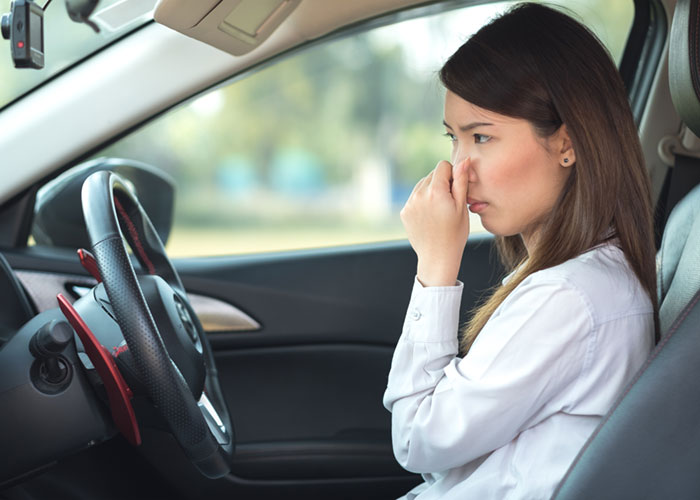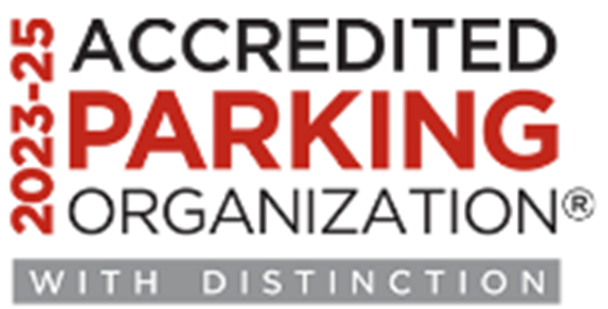By Rick Wilson | 4.5 min. read
Patients can’t disassociate from their roles and responsibilities outside of the hospital environment, nor should they be expected to. Unfortunately for healthcare providers, this means patients’ anxiety levels can fluctuate markedly from one clinical visit to the next.
Providing simple comforts, conveniences, and tokens of appreciation as part of a sustained patient transition zone management plan helps patrons navigate day-to-day pressures and alleviate external stressors. However, not all comforts and conveniences are created equal.
There’s one hospital valet parking “enhancement” that, although implemented with the best of intentions, can end up inadvertently damaging the patient experience: air fresheners.
A Rose by Any Other Name
On paper, it’s easy to think complimentary air fresheners leave valet service end users with a positive last impression. They’re branded, inexpensive, and allow the hospital administration to come out smelling like a rose. Right?
Wrong. Scents are highly personal preferences. What smells fresh, relaxing, or natural to one person can easily smell sickly, strong, and fake to another. And though certain smells have been known to positively impact mood, reduce stress, and even improve pain tolerance, others can decrease productivity and cause adverse health effects.
Further, a University of Melbourne study reported that around one-third of people surveyed have experienced health issues following exposure to scented products, with common symptoms ranging from respiratory issues to migraines and skin irritations.
Granted, analyzing air fresheners may superficially seem inconsequential. However, the unpleasant side-effects of air fresheners are further compounded for patients undergoing debilitating treatments, such as chemotherapy and radiotherapy. Therefore, gifting air fresheners to patients has the potential to worsen their already serious discomfort.
Nothing Is More Memorable Than a Smell
 Smells are also inextricably entwined with powerful emotions and memories. While that “new car smell” air freshener may make you think of (yes) a new car, to others it can trigger less positive memories — like a bad experience at a car dealership!
Smells are also inextricably entwined with powerful emotions and memories. While that “new car smell” air freshener may make you think of (yes) a new car, to others it can trigger less positive memories — like a bad experience at a car dealership!
As a result, your choice of air freshener can cause patients and visitors to inadvertently associate the last moments of their care experience with a negative memory, emotion, or prior hospital visit.
The Place Beyond the (Fake) Pines
Naturally, this level of scent sensitivity should also be extended to other areas of your patient transition zone (PTZ). For example:
- Landscaping — choose plants and flowers with a subtle or neutral fragrance, such as sunflowers and dahlias, instead of highly fragrant ones, such lilacs or lilies. Happily, fragrance-free flowers also tend to be the brightest, enabling you to make the most positive first impression possible.
- Hand sanitizer— ensure your hand sanitizing stations are stocked with fragrance-free sanitizer, and that your PTZ staff’s personal supplies are also unscented. Hand hygiene is the single most effective means of controlling the spread of healthcare-associated infections yet remains one of the biggest challenges in healthcare settings. Opting for a fragrance-free product may encourage sanitizing compliance for patients and visitors traditionally put off by stronger smells.
- Laundry detergent — if you provide laundry facilities to patients and visitors within your PTZ, ensure that your supply of detergents and fabric softeners are odorless. If patients and visitors commonly bring their own laundry supplies, consider posting a gentle reminder that highlights the importance of using scent-free products.
- Staff — reiterate the importance of using odor-neutral products when in the workplace. Actively discourage the use of perfume, body sprays, and highly scented hair and body products while on site.
Wake Up and Smell the Air Freshener
If you’re truly married to the idea of gifting air fresheners as part of your valet parking offering — or already have thousands of air fresheners stocked up and ready to go — take a more delicate approach to distribution. Instruct your valet team to hand the item wrapped to end users when giving back their car keys, or simply ask patients whether they’d like to receive the gift. Providing a variety of scents to choose from can also help prevent unsavoury side effects.
 Of course, scent considerations are just one example of the attention to detail required to craft exceptional end-to-end patient experiences; a standard your parking and transportation operator should embrace and embody at every opportunity. It’s not really about air fresheners — it’s about living and breathing service. It’s not really about offering patients a product — it’s knowing that a combination of small, carefully considered actions, gestures, and impressions are what’s needed to create the ideal patient experience.
Of course, scent considerations are just one example of the attention to detail required to craft exceptional end-to-end patient experiences; a standard your parking and transportation operator should embrace and embody at every opportunity. It’s not really about air fresheners — it’s about living and breathing service. It’s not really about offering patients a product — it’s knowing that a combination of small, carefully considered actions, gestures, and impressions are what’s needed to create the ideal patient experience.
About Us
Impark HEALTH is well versed in the oft-overlooked details of PTZ management that elevate the patient experience from “good” to “exceptional.”
We’re improving patient experiences across North America through the holistic implementation and management of patient-first parking, transportation, and wayfinding solutions. Our entry and exit design expertise and commitment to excellence has led us to partner with multiple hospitals featured on U.S. News’ 2018–19 Best Hospitals Honor Roll.
From small rural hospitals to metropolitan healthcare giants, we’re dedicated to helping healthcare providers of all shapes and sizes pursue the Triple Aim on both a consultative and turnkey management basis. Contact an Impark HEALTH specialist today to see how we can leverage our 15-million annual patient interactions to help you.
Rick Wilson is vice president of Impark. Email him at rwilson@impark.com.


